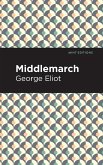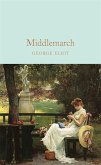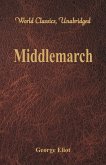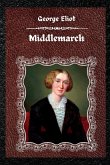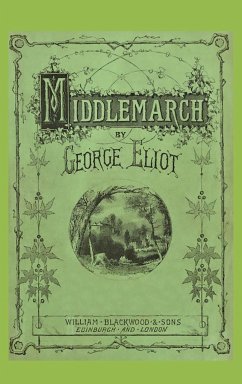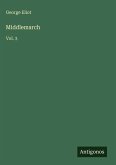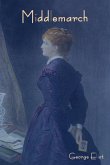Small-town life. Grand aspirations. Can one woman's quest for purpose reshape her life and those around her? In Middlemarch, George Eliot paints a richly detailed portrait of a provincial English town and its inhabitants, exploring the intertwining lives of characters with deep ambitions and moral struggles. At the center is Dorothea Brooke, an idealistic young woman whose desire for meaningful change clashes with societal expectations. This masterful novel examines love, ambition, and personal growth, capturing the complexities of human nature and the subtle forces that shape lives in a tightly knit community.
Hinweis: Dieser Artikel kann nur an eine deutsche Lieferadresse ausgeliefert werden.
Hinweis: Dieser Artikel kann nur an eine deutsche Lieferadresse ausgeliefert werden.

WARUM JETZT DAS?
Weil es dieser Tage 200 Jahre her ist, dass George Eliot zur Welt kam. Die Autorin, die eigentlich Mary Ann Evans hieß, war als junge Frau tief religiös, später Atheistin, lebte lange unverheiratet mit einem jüngeren Mann zusammen und genoss als Schriftstellerin und Denkerin trotzdem großes Ansehen in der viktorianischen Gesellschaft. Schon das ist interessant.
UND "MIDDLEMARCH" ERST RECHT?
So ist es. Eine Kleinstadt um 1830, kurz vor sozialen und voller privater Umbrüche. Satire, Realismus, Zartheit, Humor, alles drin, von Glück bis Unglück, halb Jane Austen, halb Tolstoi. Virginia Woolf nannte das Buch den einzigen englischen Roman für Erwachsene. Ein Muss. (balk.)
George Eliot, "Middlemarch", Rowohlt Verlag, Hamburg 2019, 1264 S., geb., 40 Euro.
Alle Rechte vorbehalten. © F.A.Z. GmbH, Frankfurt am Main


